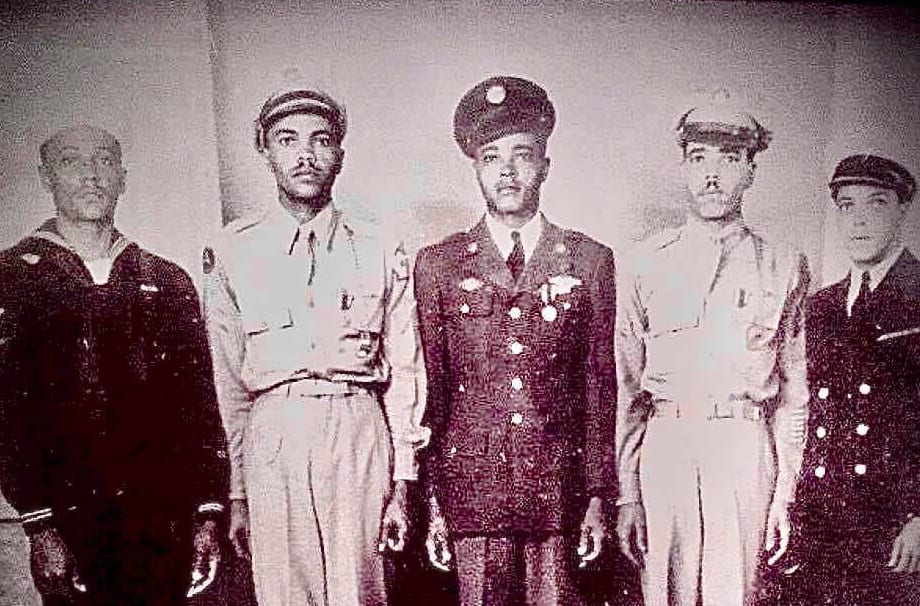When I was younger, I rarely asked questions about my family. I knew we blasted Stevie Wonder at barbecues, went to church on Easter and spent just about every summer in Louisiana visiting our family.
The truth is I grew up not really having to confront, discuss or defend my Black identity until I went to college. It wasn’t that my Blackness wasn’t important but that the community I lived in right outside Washington, D.C., was so diverse and intercultural that it was never a point of conversation or isolation when I was a kid.
As I grew older and honed my research instincts as a journalist, I began to ask more pointed questions about my lineage.
My family always celebrated our Black identity, although we have a multiracial background. But as I grew older and honed my research instincts as a journalist, I began to ask more pointed questions about my lineage. How did we end up in Louisiana? Why do we have a farm there? At what point did my ancestors’ French and Black bloodlines mix?
Questions like these are hard to answer — not just for me but for millions of Black Americans who don’t have documentation of their ancestors. But recently, something happened that has helped connect some of those dots.
Ahead of Juneteenth this year, I had the honor of reporting on the stories of student activists, historians and Black Americans working to provide reparations to the descendants of slaves on college campuses around the country.
The movement for reparations at Georgetown University sparked national attention in 2019, as students advocated for atonement for the descendants of the enslaved men, women and children the university and Maryland Jesuits sold in 1838. The sale of these 272 slaves, known as the GU272, saved the university from foreclosure.
In 2019, 66 percent of Georgetown students voted in a referendum to add a $27.20 student fee to be donated to descendants of the GU272. However, the university never officially passed the measure. (As part of my reporting this year, Georgetown sent me a statement that read, in part, “In order to embrace the spirit of this student proposal, Georgetown has established a Georgetown fund supported by a minimum of $400,000 a year for community-based projects to benefit the Descendant community.”)
Back in 2019, the story piqued my interest, given that I have family from Louisiana and seemed to share many qualities of the GU272 descendants. I looked up my last name on a document called “The Manifest of Katherine Jackson 1838” and was shocked to find a 6-year-old girl named Harriet Eaglin listed on the transaction.
My heart sank, and I felt the heat rise in my cheeks. It’s one thing to infer where your family came from, but it’s a completely different experience discovering personal clues about your family’s not-so-rosy past. I refreshed the page. For some reason, I already felt connected to Harriet.
At the same time, and it feels weird to say, but I was excited by this clue. It didn’t make me happy to think about the brutality and inhumanity Harriet faced, but the possibility of connecting my bloodline to a name made me feel a sense of optimism. I felt hopeful that I would be able to bring her name back into the world and welcome her into our family again.
Next I found a document titled “How Do I Know If I’m Related to the GU272?” I began checking off every item on the list: My family is mixed and Black, it’s Catholic and it’s from St. Landry Parish, and I’ve been stuck trying to discover more about my family history before the 1850s.
I felt hopeful that I would be able to bring her name back into the world and welcome her into our family again.
I didn’t have a platform to share my story when I started investigating in 2019, but something about the urgency and fragility of the pandemic pushed me to start investigating again for Juneteenth 2021. I connected with Georgetown alum Richard Cellini, founder of the Georgetown Memory Project, for more information.
“The Georgetown Memory Project is here to give people back their story, because these stories are so wonderful,” Cellini told me.
Cellini said the Georgetown Memory Project has been able to identify thousands of GU272 descendants thanks to genealogy, written records and DNA confirmation. He gave me additional information about my family, including the high likelihood that at one point our last name was spelled “Edelin.”
“The Eaglins actually were a very well-known family of Black people who were enslaved by the Maryland Jesuits in southern Maryland,” Richard said, “Just being Black and Catholic is kind of a big clue. But when you add in these other things, like the surname and also the geographic connection, based on everything we know, I would say you’re almost certainly connected to the enslaved community that was owned by the Maryland Jesuits.”
I haven’t been able to confirm my connection to Harriet through DNA, but I’d like to in the future.
And while I’ve experienced frustration, sadness and confusion in the process of finding Harriet, I have also experienced pride. Having family records and documentation is a privilege, one I don’t take lightly. Whether I’m directly related to Harriet or not, I plan to continue to search for the roots of my family tree. And I’d encourage others who are curious about their own roots to look for resources that can help. Connect the dots; pass that information along to other members of your family; help jump-start a new sense of generational knowledge, healing and belonging. We truly can learn so much about where we are going once we understand where and whom we came from.
Source: | This article originally belongs to Nbcnews.com











